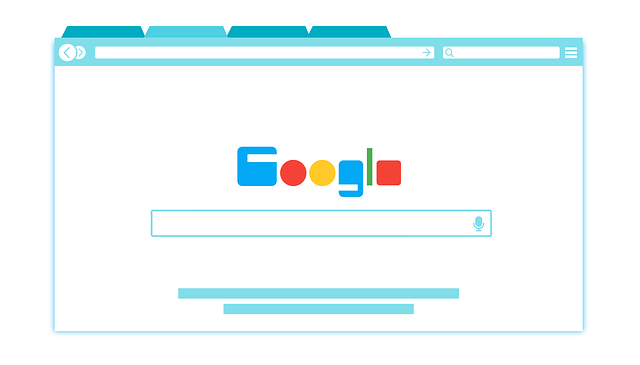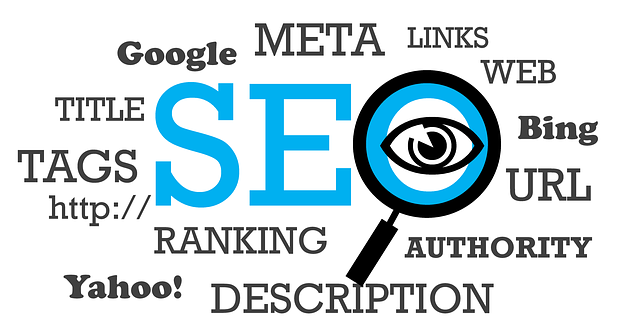Last updated on July 22nd, 2019
Creating a wonderful website which is both captivating and renders a stunning portfolio is not a guarantee for its success. You will not be able to sustain your online presence if it is not Search Engine Optimized. When it comes to SEO, everyone wants to achieve better search ranking on Google, and hence a better organic search traffic, which is one of the main drivers of business growth. When it comes to SEO, everyone wants to achieve better search ranking on Google, and hence a better organic search traffic, which is one of the main drivers of business growth.

SEO techniques today have undergone big changes. The trouble is, such tweaks have always been regular. No one wants to get penalised by following wrong SEO practices which are against the current algorithms which Google uses while ranking in SERPs.
So, making your visitors stay longer on the website you own and interacting with the content you have, can really get better search engine ranking of your website. In this article, we will discuss some of the best SEO tips to improve your website rankings, and therefore increase the number of organic visitors to your website.
1. Focus on All Aspects of SEO
Most of the people spend a large percentage of their time focusing on keywords and not on other important aspects of SEO. Working on keyword optimisation is important but you need to consider other factors too. Google Search engine algorithms not only rate the relevance of the keywords you use on pages and in Metadata, but they also evaluate the information such as how long the visitors stay on your website, pages viewed, outbound and inbound links and so on.

2. Select the Best Keywords to Focus On
Keywords still remain as one of the most important elements of SEO and the first step in Search engine optimisation process is to pick the search term or the phrase for which you want your website to show up. For example, if I am starting a website for selling bags online, I will find out what people actually look for when it comes to searching bags. There are some great tools which will help you in this regard. Though there are many tools at your disposal but Google Keyword Planner seems to be very authentic and an official selection tool when you want to plan keywords for Google Search ranking. Although this tool from Google is free to use, you will need to set up the AdWords account to gain access.
Once logged in, you need to research well and find keywords for which the competition matches the authority of your website. High authority websites have the liberty to aim for the top competitive keywords with the backing of an extensive SEO foundation. On the other hand, low authority websites can aim for keywords with medium competition at the most to stand a realistic chance at ranking.
3. Do proper research for the competition and create targeted content
After you have decided on the topic of the blog, it is the time to search the competition for that keyword on Google. Use the ‘Private browsing’ mode on the web browser you are using, so that Google does not use the past search history to bring an influence on your search results page. With the same keyword, look for all the content on the first page of Google and ignore Ads on top. After researching the competition, create amazing types of content that can beat out even the best content from your competitors.
A relevant and appealing content is the norm, which will influence both your audience as well as Google which will take a note of quality to rank your website higher. Dwell time is the time spent by the visitors when they visit your website and it is also a big factor in terms of your website’s SEO ranking on Google. When you are providing a useful and relevant content, visitors will stay longer on your website in order to consume information and therefore, the dwell time is increased. Based on a recent research from Quicksprout, a content of 2000-2500 words seems to achieve a high rank in search engine results. If the word count is large, the content gets the opportunity to include more keywords, more outbound links and of course readers spend more time to read it.
4. Put everything in place when it comes to the keyword usage for better SEO ranking
Be sure to put the keyword in the title of your page. Also, use the keyword at least once in the subheadings of the blog post. This structure is very useful as it helps Google understand exactly what your blog post is about. If your blog post contains images, then use those images to tell Google about the topic of your post. In order to do this, simply change the name of the image on your computer to the name containing the keyword you use.
Similarly, don’t forget to put an alt tag to your image which is also required for a better SEO of your blog. Also, use the keyword in your post URL. Here are two examples – www.coolbags.com/4555688-1 www.coolbags.com/coolbags So, which URL do you think Google will prefer? Obviously the second one. It will help Google understand what the post is about rather than the first which can kill your SEO efforts.
5. Page load speed matters!
Your page load speed is another important ranking factor. The longer it takes for the page to load, the more visitors you end up losing. This aspect has to be taken very seriously otherwise it will kill your Google rankings in no time! There are several ways to increase your page load speed. Here are the important ones –
- Use caching plugins
- Make sure that your website code is clean and streamlined
- Optimize image sizes
- Minimize redirects
- Reduce the number of plugins and use only those which are needed.
A Research from Unbounce has shown that using good quality images increase the website conversion rates to a great extent. With proper optimisation of the images, you can not only take the benefit of the appealing images to attract more audience but can also improve the visitor experience by improving page load time and thus, achieve better SEO rankings.
6. Outbound Links
For making your website content more useful and relevant, you can link out to interesting and informative websites and blogs for more in-depth information. Linking to respected authority sites not only helps in increasing the content quality and relevance of your content but also sends trust signals to Google and thus improves your Google SEO scores. However, too many outbound links can distract your readers and should, therefore, be avoided.
7. Remove or Fix each and Every Broken Link
Broken links create a bad impression of your website content as no one ever wants to land on a 404 page after clicking on a link while reading your content. Moreover, search engines like Google do not respect broken links at all on web pages and treat them as a signal that your website is an old and neglected case.

So beware of 404s! They can seriously impact your SEO ranking on Google!
Bottom-line
Well, before we conclude, just do not overlook the power of social media. You should definitely use it to expand your online presence, which also attracts the attention for better search engine rankings. Instil videos of your business in your content and get higher engagement and better search engine visibility! Although trends keep on changing as Google algorithms keep on getting tweaked from time to time, we expect that all the SEO tips mentioned here will dominate the scene at least through 2017. The importance of all the factors explained above will not diminish in the foreseeable future since they are a very integral part of the SEO strategy of any kind of website!









